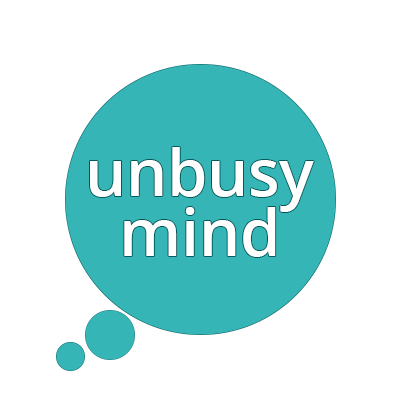
25 Nov Embrace Psychological Flexibility: Your Guide to a Happier Mind
In a world that changes faster than we can blink, how do we keep up? How do we stay calm when life throws curveballs our way? The secret lies in something called psychological flexibility. Think of it as your mind’s yoga practice—stretching and bending without breaking, even during life’s toughest moments.
If you’ve ever felt stuck in negativity, overwhelmed by stress, or trapped by rigid thinking, this guide is for you. Let’s dive into the art of psychological flexibility, why it’s essential for mental wellbeing, and six game-changing tips to improve it.
What Is Psychological Flexibility?
The Power to Adapt and Thrive
Psychological flexibility is the ability to stay open to emotions—both the good and the not-so-good—and make choices that align with your values. Instead of letting fear or discomfort dictate your actions, you embrace life as it comes and respond thoughtfully.
It’s like having a GPS that recalculates your route when you hit a roadblock. You may not enjoy the detour, but you keep moving forward toward your destination.
Why Does It Matter?
When we resist change or avoid difficult emotions, we create unnecessary stress. Psychological flexibility helps us break free from this cycle by teaching us to:
- Acknowledge our feelings without being controlled by them.
- Adapt to life’s twists while staying true to our goals.
- Navigate challenges with resilience and clarity.
The Benefits of Psychological Flexibility
1. Reduced Stress and Anxiety
Let’s face it: avoiding emotions is exhausting. When you stop fighting and start accepting, you save energy for what truly matters.
2. Better Emotional Regulation
Ever let anger or sadness take the wheel? Psychological flexibility helps you feel without letting emotions run the show.
3. Greater Resilience
Life’s setbacks are inevitable, but bouncing back is easier when you see challenges as opportunities to grow.
4. Healthier Relationships
By understanding your feelings and those of others, you communicate better and build stronger connections.
5. Fulfillment and Peace
Living in alignment with your values creates a sense of purpose. That’s where true happiness thrives.
How to Cultivate Psychological Flexibility
1. Practice Mindfulness to Stay Present
Mindfulness is your secret weapon for noticing emotions without being swept away.
- Try a simple breathing exercise. Focus on each inhale and exhale for one minute.
- Bring mindfulness to daily activities, like savoring your morning coffee or fully engaging in a conversation.
Mindfulness creates space between feeling and reacting, giving you the freedom to choose your response.
2. Challenge Rigid Thinking
Rigid thoughts—like “If I fail, I’m worthless”—trap us in unhelpful patterns. Instead, ask yourself:
- Is this thought 100% true?
- Could there be another perspective?
Opening up your mindset can feel like switching from a black-and-white photo to full color.
3. Accept Your Emotions Without Judgment
Fighting emotions is like trying to hold back a tidal wave. Instead, ride it. Say to yourself:
- “It’s okay to feel this way right now.”
- “This feeling is temporary.”
Acceptance doesn’t mean you enjoy the discomfort; it means you stop letting it control you.
4. Clarify Your Values
Knowing what matters to you is like having a compass in a storm. Ask:
- What’s most important to me in this situation?
- How can I act in line with my values?
For instance, if you value kindness, respond with patience—even when you’re frustrated.
5. Set Small, Achievable Goals
Feeling overwhelmed? Start small. If public speaking terrifies you, begin by sharing ideas in a meeting or practicing with a friend.
Every small step builds confidence, showing you that you can handle discomfort and grow stronger.
6. Engage in Self-Compassion
Be your own cheerleader, not your harshest critic. When things go wrong, remind yourself:
- “Everyone makes mistakes.”
- “I’m doing the best I can.”
Treat yourself with the kindness you’d offer a friend, and watch your mental strength soar.
Examples of Psychological Flexibility in Daily Life
1. Adapting to Change
Lost your job? Instead of resisting, acknowledge the setback and explore new opportunities.
2. Facing Fear
Want to try something new but feel scared? Take baby steps while keeping your end goal in sight.
3. Handling Criticism
Criticism stings, but psychological flexibility helps you listen, reflect, and grow without taking it personally.
4. Navigating Conflicts
In disagreements, step back, recognize your emotions, and seek common ground.
5. Managing Anxiety
Instead of avoiding social situations, accept the nerves and show up anyway.
Psychological Flexibility and Mental Health
Research links psychological flexibility to improved mental health. Here’s why:
- It reduces overthinking by encouraging action despite fear.
- It combats burnout by promoting balance and adaptability.
- It enhances creativity by fostering open-mindedness.
Final Thoughts
Life is unpredictable, but that’s what makes it beautiful. Psychological flexibility empowers you to embrace the chaos, stay grounded in your values, and grow through every twist and turn.
Start small. Be kind to yourself. And remember, every step toward flexibility is a step toward freedom.

